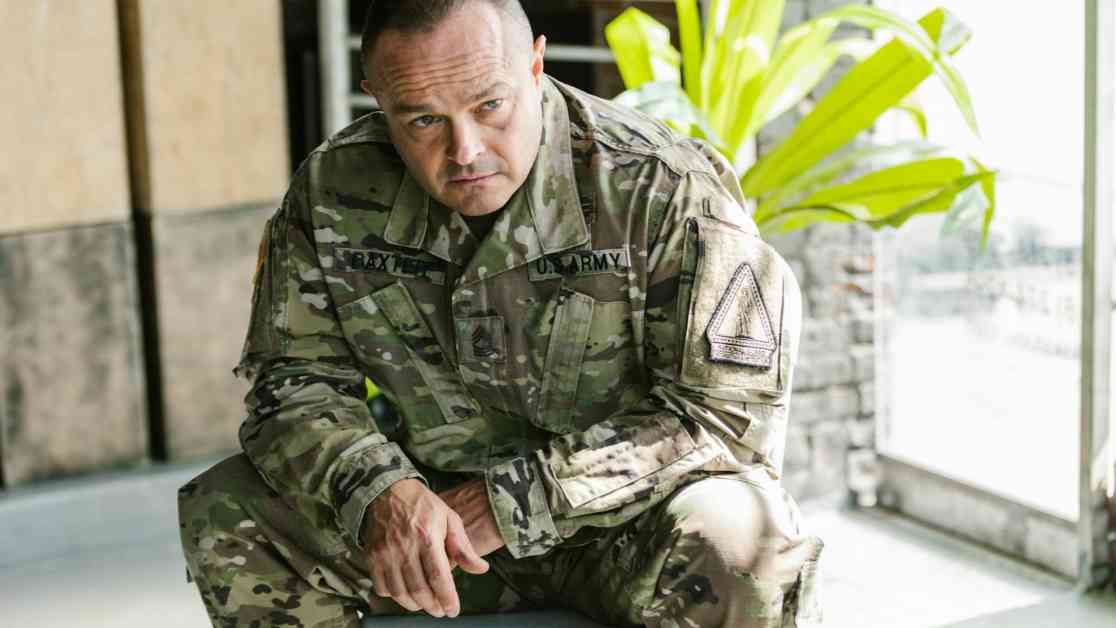US Veterans Facing Repayment of VA Benefits to Continue Disability Payments
In a shocking turn of events, over 122,000 US veterans who received special separation benefits (SSB) in the past three decades are now being required to repay these benefits to the US Department of Veteran Affairs (VA) in order to continue receiving disability payments. These veterans, who willingly left their service when the US was reducing its active-duty personnel count, were stripped of their disability benefits by the VA. For many veterans, this sudden requirement to repay thousands of dollars in SSB payouts has left them in a state of financial uncertainty and distress.
The Impact on Veterans
One such veteran, Vernon Reffitt, received a lump sum SSB payment of $30,000 when he left the service in 1992 at the military’s request. Over the last three decades, he has been receiving monthly disability checks due to an injury incurred during his service. However, when Reffitt applied for additional disability benefits for another ailment last year, he was informed by the VA that all his checks would stop until he repaid the $30,000 SSB lump sum. This situation has left Reffitt and his wife contemplating taking on a second job to repay the amount, a process that could take up to 15 years, delaying his disability payments until he turns 77.
Another veteran, Shawn Teller, who served in operations like Desert Storm, found himself in a similar predicament. He had been receiving a monthly disability check of $586 since 2012 for an old knee injury. However, when Teller applied for benefits for his asthma last year, the VA not only denied the application but also cancelled his ongoing disability payments until he repaid the $10,700 SSB payout he received in 1996. This sudden requirement to repay SSB benefits has left many veterans struggling to make ends meet and uncertain about their financial futures.
Understanding the Law
The law that prohibits veterans from receiving both SSB and disability payouts has come as a surprise to many, including experts like Shane Collins who had no idea they would have to repay their SSB payout if granted disability benefits. The VA explains that veterans were never supposed to receive both SSB and disability payments, and the recoupment is happening now because many veterans have filed for disability benefits in the past decade. This enforcement of the law has left veterans like Reffitt, Teller, and many others in a state of financial turmoil, unsure of how to repay the significant amounts owed to the VA.
Outrage and Legal Challenges
The sudden requirement for veterans to repay SSB benefits to continue receiving disability payments has sparked outrage among the veteran community. Many veterans, who rely on their monthly disability checks for household expenses, have been left in a state of financial distress due to the VA’s actions. Former US Army combat medic Daphne Young described the situation as “agonising” when her disability checks stopped coming in, and she had to repay $15,000 in separation benefits to the VA before the checks could resume.
As disappointment among veterans continued to grow, the VA announced special waivers to address the issue. These waivers allow veterans to keep their SSB payout and continue to receive disability checks, but only a few waivers have been granted so far. Some veterans have taken their case to the US Court of Appeals for Veterans Claims, challenging the VA’s decision to recoup SSB payments. Navy veteran John Colage, a survivor of the 1989 explosion on the USS Iowa, believes that the VA was not supposed to take back the money and that the legislation has been convoluted to justify the recoupment of SSB payouts.
The Need for Change
Many veterans and advocates, including Marquis Barefield of the advocacy group DAV and Rep. Ruben Gallego, have called for a statutory change to eliminate the recoupment of disability benefits. They argue that SSB payments and disability checks are two separate forms of compensation, with SSB payments based on a veteran’s military career and disability benefits related to illnesses or injuries incurred during service. Despite bipartisan support for such a change, the legislative process has been slow due to the associated costs and complexities involved.
In conclusion, the requirement for US veterans to repay SSB benefits in order to continue receiving disability payments has had a significant impact on thousands of veterans across the country. As veterans struggle to repay these benefits and maintain their financial stability, the need for a change in legislation to address this issue has become more urgent than ever. It is crucial for policymakers to consider the well-being of veterans and ensure that they receive the support and benefits they rightfully deserve without facing undue financial burdens.













